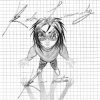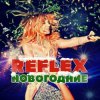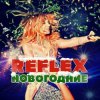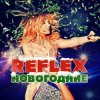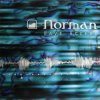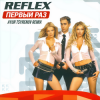

Reflex is a Russian pop and dance group formed in 1999 by singer Irina Nelson and producer Vladislav Tyurin. The act became one of the most recognizable and successful projects of the early 2000s, giving listeners numerous hits that topped Russian radio charts.
Background: Irina Nelson’s early path
Irina Nelson (née Irina Tereshchenko) was born in Novosibirsk and was connected with music from early childhood. She graduated from a music college as a piano major, but soon realized that her true calling was pop music.
In 1994, Irina moved to Moscow, where she began a solo career under the stage name Diana. In 1996, she signed a contract with the label “Soyuz” and released several successful songs, including the hit «Ne govori, chto ty lyubish’ menya» (“Don’t Say That You Love Me”), which brought her her first wave of popularity.
For some time the singer worked in Germany, where she immersed herself in the electronic club culture and became interested in esotericism — spiritual practices and philosophies that would later influence her lyrics and overall artistic style.
Formation of Reflex (1999–2000)
After returning to Russia in 1999, Irina and musician/producer Vladislav Tyurin founded the group Reflex. A casting was held for the project, and the final line-up included:
-
Irina Nelson — vocals
-
Olga Kosheleva — dance, backing vocals
-
Denis Davydovsky — dance
In 2000, the debut single «Dalniy svet» (“Distant Lights”) was released. It went into heavy rotation on Europa Plus radio and became the calling card of the new group. Later, German musicians ATV, who had fallen in love with the band’s sound, created remixes of the track.
Breakthrough and popularity: «Soyti s uma» (2001–2003)
Real fame came to Reflex in 2001 with the release of the song «Soyti s uma» (“Going Crazy”). The track quickly took leading positions in nationwide charts and became one of the most frequently played songs on Russian radio.
In 2002, a new member joined the group — DJ Silver (Grigory Rozov), who strengthened the project’s electronic sound. At this time, Olga Kosheleva and Denis Davydovsky left Reflex, and later the group was joined by striking dancer Alyona Torganova, who had professional choreographic training.
2002–2003 became a true peak for Reflex:
-
«Soyti s uma» turned into a nationwide phenomenon
-
the group received awards such as «Bomba goda» (“Bomb of the Year”), «Zolotoy Grammofon» (“Golden Gramophone”) and «Ovatsiya» (“Ovation”)
-
Vladislav Tyurin was honored with the title of “Best Composer”
-
Reflex performed at the largest venues in Russia and neighboring countries
Expanding the discography and tours (2003–2005)
During this period the group released several studio albums in quick succession:
-
«Ya tebya vsegda budu zhdat’» (“I Will Always Wait for You”) (2003)
-
«Non Stop» (2003)
-
«Eto lyubov’» (“This Is Love”) (2003–2004)
Reflex songs became an integral part of the radio landscape of that era, while their music videos consistently made it into the top rotations of music TV channels.
In 2005, the line-up was joined by Zhenya Malakhova, who took over as lead vocalist after Irina Nelson decided to return to her solo career under her own name.
The period after Irina Nelson’s departure and new projects (2005–2010)
Despite changes in the line-up, Reflex remained an active group. Malakhova took part in recording a number of singles and live performances, while Irina continued to collaborate creatively with the team.
In 2009, Nelson rejoined Reflex for a US tour. In 2010, together with Vladislav Tyurin and the group, she recorded the track «Selyavi», for which a music video was filmed. The song became one of the most popular releases of the band’s later period.
The band’s style
The sound of Reflex combines:
-
elements of eurodance
-
electronic synthesizer parts
-
melodic female vocals
-
atmospheric lyrics with romantic themes
The group’s visual style has always played a major role: choreography, bright stage costumes and futuristic music videos all helped make Reflex a symbol of early-2000s pop aesthetics.
Discography
Studio albums
-
«Dalniy svet» (“Distant Lights”) (2001, unofficial release/compilation of early tracks)
-
«Ya tebya vsegda budu zhdat’» (“I Will Always Wait for You”) (2002)
-
«Soyti s uma» (“Going Crazy”) (2002)
-
«Non Stop» (2003)
-
«Eto lyubov’» (“This Is Love”) (2003)
-
«Puls» (“Pulse”) (2005)
-
«Veter pervoy lyubvi» (“Wind of First Love”) (2006)
(This list may be expanded, taking into account various compilations and reissues.)
Selected hits
-
Soyti s uma
-
Dalniy svet
-
Mne trudno govorit
-
Ya tebya vsegda budu zhdat’
-
Eto lyubov’
-
Non Stop
-
Selyavi
-
Tantsy (“Dances”)
Conclusion
Reflex is rightfully considered one of the key Russian pop groups of the 2000s. Thanks to their bright, catchy songs, recognizable sound, the many years of work by Irina Nelson and Vladislav Tyurin, and a strong visual presentation, the group secured its place in the history of Russian pop music.
Despite line-up changes and creative pauses, Reflex continues to perform, release new songs and maintain a strong connection with its vast audience. Their music is still perceived as a symbol of an era, leaving a vivid trace in the memories of an entire generation.


